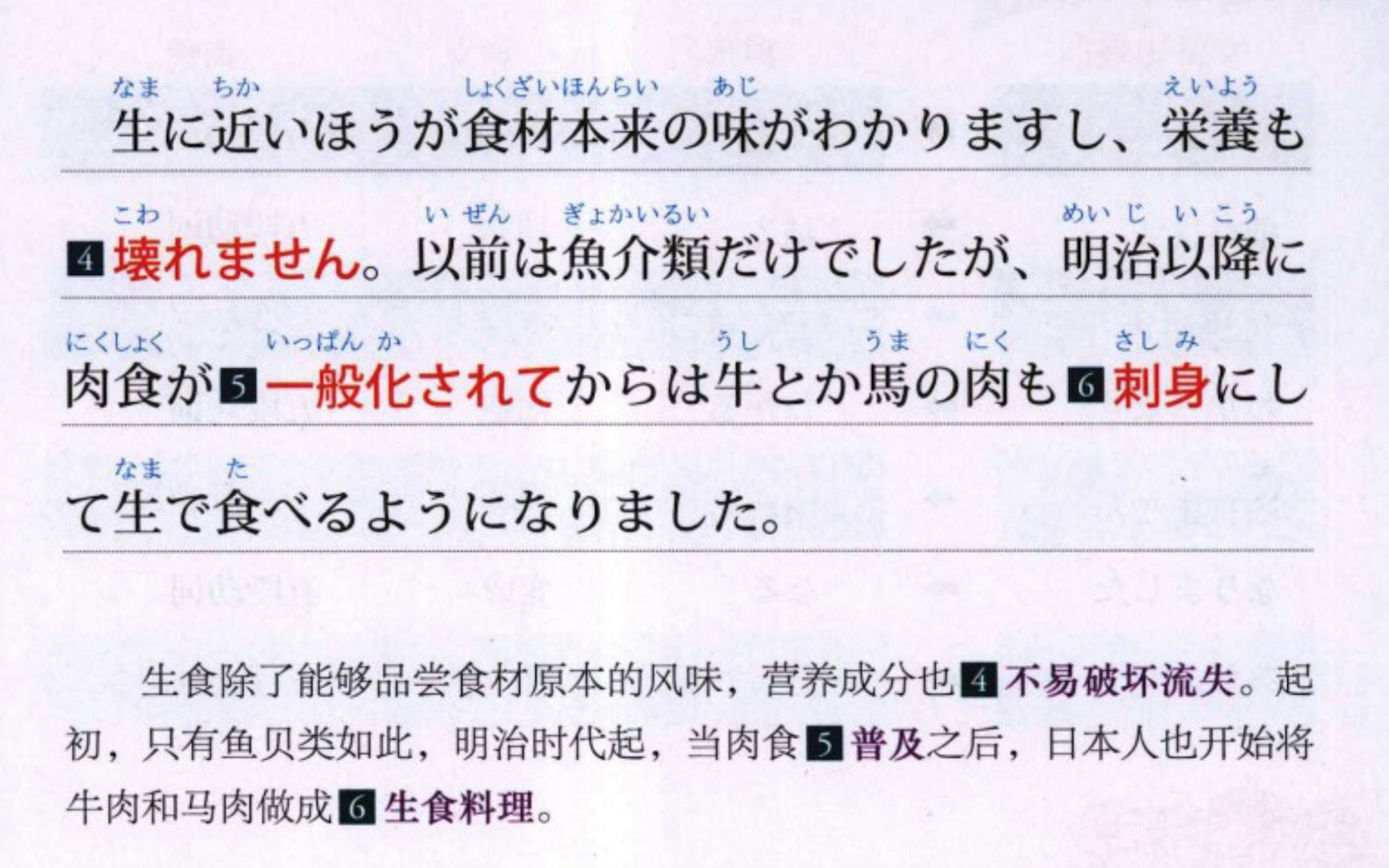I came across this phrase in a passage and I am not quite sure what it means. It seems unlikely that it is used for comparison, but I could be wrong. The Chinese translation following it seems to translate it to "not only". There is no grammatical explanations in the book, and searching online hasn't been helpful either. So someone please illustrate the appropriate grammar here.
1 Answer
生に近いほうが can be broken down as 生に近い + ほうが. 生に近い means to be close to raw. Presumably close because you do some preservation, just not cooking. ほうが is used as a judgement/comparison. This example, which I copied from here, illustrates this:
部屋{へや}は、広{ひろ}いほうがいいです。
This example means As for rooms, wider/more expansive ones are better. The ほうが is used to make the judgement that wider ones are better. In your example, 生に近いほうが means that the speaker is about to make a judgement/analysis about things that are close to raw. In your case the speaker says that they let you understand the original taste and don't destroy the (original) nutrients.
As for why the Chinese translates that as not only, I imagine it's because the Japanese clause ends with ~し, which is a grammar that can be used to list things/reasons.
-
Thank you so much for your comprehensive explanation. However, I do still have one question. The Chinese translation completely ignored this phrase and it made sense. So is translating it necessary? If yes, what should be the appropriate translation? and if not, why?– ZeyuanCommented Oct 3, 2018 at 10:28
-
@Zeyuan I think in the Chinese there is an implicit comparison to non-raw food as well. But I'd say that translating that part isn't necessary because I think it's just drawing attention to the unique characteristics of raw food and it could be replaced by 生に近いのが (I'm not a native speaker though so I could be wrong).– RingilCommented Oct 3, 2018 at 16:04

